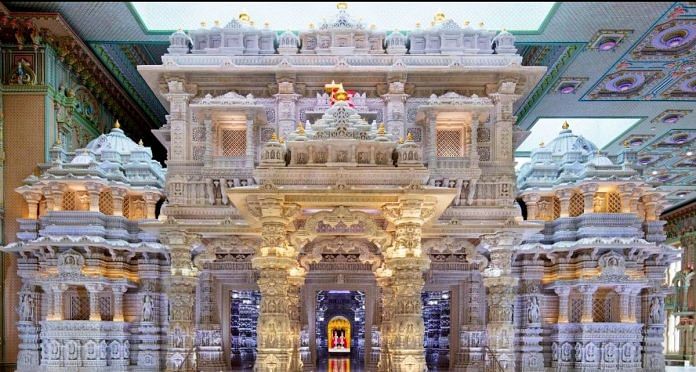Over the past year, efforts to confront the legacy of racism in the U.S. have transfixed and inspired the world. Newer forms of discrimination, however, are emerging in 21st century America. Even as Americans deal with their own demons, they’ll soon have to grapple with India’s, too.
U.S. authorities recently raided a large and well-known Hindu temple in New Jersey that they said had exploited Dalit workers from the “lowest” bracket of India’s caste system. The men had been categorized as “lay religious workers” for immigration purposes but were instead employed in back-breaking labor for $1/hour. Civil-rights groups are now demanding that the Equal Employment Opportunity Commission “recognize the intertwined nature of caste and race” and apply civil rights laws designed to end race-based discrimination to caste-based discrimination as well.
The case is not an isolated one. The state of California has been trying to chase down caste-based discrimination at Cisco Systems Inc. since last year. According to one 2018 survey, two-thirds of American Dalits “reported being treated unfairly at their workplace because of their caste.”
Perhaps it shouldn’t be surprising that, halfway across the world, India’s worst gift to the world might be living on. As the South Asian diaspora grows, fueled by energy and education, many of its members have risen within the hierarchies of their adoptive countries. With this rise comes greater power; with power comes the ability to discriminate.
Nor is caste the only Indian cleavage that will matter to the rest of the world before long. In March, police in Sydney had to intervene when growing tensions between local Sikhs and supporters of the Hindu nationalist Bharatiya Janata Party led to Sikhs being attacked on the streets. And back in Silicon Valley, an Indian-American engineer has filed a suit against Apple Inc., arguing that her managers — also from the diaspora — treated her with special contempt because she was a South Asian woman.
The irony is that, precisely because injustices and oppressions of multiple kinds have long been a part of South Asian society, we in India have a constitution that seeks both to name and to right some of these wrongs. Quotas for various historically disadvantaged groups, in educational institutions as well as the public sector, are a crucial part of this decades-long effort.
Countries and companies elsewhere will not be able to replicate India’s attempted solutions. They must, however, expand their own conceptions of oppression and prejudice to include those that emerge from the subcontinent. You can’t credibly claim to be fighting one type of discrimination while also saying that dealing with other forms is not legally required.
Your own employees won’t allow that sort of hypocrisy. Consider what happened at Facebook Inc., whose India public policy team, seen as insufficiently diverse and too close to the ruling establishment, quickly became the subject of complaints by Facebook employees globally.
This will not be easy. For one, any attempt to be realistic about such biases will be fought, tooth and nail, by some Indian Americans themselves. Many like to think that they have moved beyond caste. In India, we know that any room of people who think they have moved beyond caste is one that has only upper-caste people in it — and, yes, the U.S. diaspora is overwhelmingly dominated by people from the “top” deciles of the caste system.
Others, including the Hindu nationalists who run politics in India and are increasingly influential in the U.S., see talk of caste as insulting. (Caste may have originated as a Hindu system but people of all religions in South Asia, including Islam and Christianity, have quietly adopted its biases.) Some organizations have spent decades tussling with the state of California, attempting to sanitize discussions of Hinduism in school textbooks and in particular to eliminate mentions of caste. In 2019, a U.S. district judge dismissed one such lawsuit, a decision which survived a challenge in 2020.
For Indians, it’s a disappointment that the starry-eyed narrative of idealistic Indian engineers helping build Silicon Valley is being tarnished. But we should also be glad that discrimination against “lower” castes, so rife in the elite colleges that many Indian engineers graduated from, might be taken seriously in the country in which they aspire to live. Once again, the U.S. can do the world a favor by helping to set new civil-rights standards.- Bloomberg
Also read: Somnath, Akshardham & now Ram Mandir — Gujarat family designing temples for 15 generations



